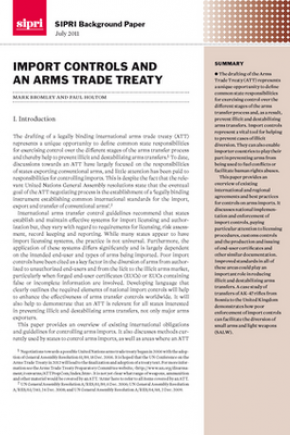Import Controls and an Arms Trade Treaty
The drafting of an arms trade treaty (ATT) represents a unique opportunity to define common state responsibilities for exercising control over the different stages of the arms transfer process and, as a result, prevent illicit and destabilizing arms transfers. Import controls represent a vital tool for helping to prevent cases of illicit diversion. They can also enable importer countries to play their part in preventing arms from being used to fuel conflicts or facilitate human rights abuses.
This paper provides an overview of existing international and regional agreements and best practices for controls on arms imports. It discusses national implementation and enforcement of import controls, paying particular attention to licensing procedures, customs controls and the production and issuing of end-user certificates and other similar documentation. Improved standards in all of these areas could play an important role in reducing illicit and destabilizing arms transfers. A case study of transfers of AK-47 rifles from Bosnia to the United Kingdom demonstrates how poor enforcement of import controls can facilitate the diversion of small arms and light weapons (SALW).
I. Introduction
II. International obligations and guidelines
III. National implementation
IV. Import controls in an ATT


